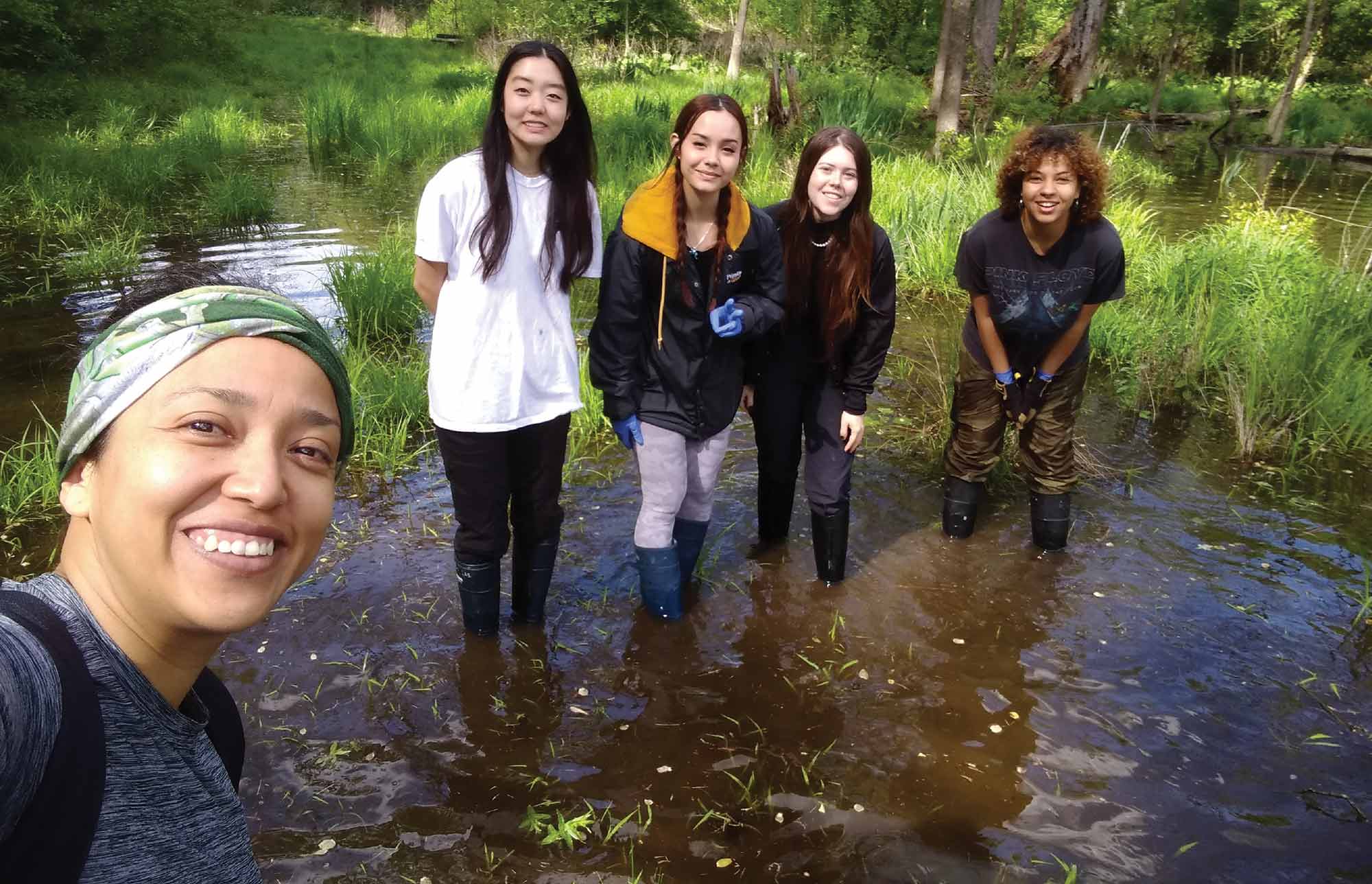
studentwise: frog focused
Though women have historically been underrepresented in the study of amphibians and reptiles, Aimi Holmes ’25, Stephanie Kim ’25, and Isabella Wyatt ’25, along with Bryn Mawr’s Leila N’Diaye ’24 are pursuing it under the canopy of Crum Woods and the mentorship of Assistant Professor of Biology Itzue Caviedes Solis.
They started by learning about Swarthmore’s native wildlife to gain insights about the state of the local environment and waterways. They focus on amphibians because they have incredibly permeable skin, making them excellent bioindicators. An amphibian’s health reflects the health of its ecosystem.
When not wearing galoshes in the Crum, Caviedes Solis’ students conduct lab work in Singer Hall and take part in community outreach at the Swarthmore Public Library. They even traveled to Mexico this summer to explore a diverse, amphibian-rich tropical forest.
For six weeks, Holmes, Kim, Wyatt, and Caviedes Solis conducted field work in Mexico’s Chamela-Cuixmala Biosphere Reserve. Each student conducted a solo research project while also collaborating to collect data for the others. Afterwards, Caviedes Solis and her students began lab work at the Universidad Nacional Autónoma de México in Mexico City.
Caviedes Solis, who grew up in Iztapalapa, Mexico City, calls herself “a frog lover by nature and frog scientist by training.”
The author of Frogs: A Day in the Life and Women in Herpetology: 50 Stories from Around the World encourages students to lean into their curiosity and to bravely pursue fields where they are underrepresented.
Over the weeks in Mexico, the students were impacted greatly by the creatures they studied, the immersion in a completely new environment, and the scientists they met. Working in Chamela surrounded by wilderness broadened Kim’s appreciation for biodiversity, conservation, and research. Holmes discovered her passion for lab work, and being at the vibrant UNAM campus among hard-working women gave her a sense of accomplishment. Wyatt appreciated learning about frogs, acquiring new skills, and witnessing the love that the scientists they met have for their study organisms. She looks forward to joining them as a scientist one day.